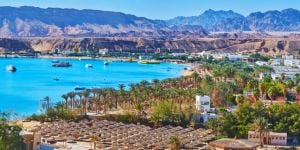Buying and selling property can be tricky for Egyptians as much as for foreigners, and there are pitfalls to be avoided.
1. You must ensure that the seller has the legal right to sell. There have been very many cases - court cases - where property has been sold when the seller did not have clear title to the asset. You must be aware that the laws of inheritance in Egypt are such that assets virtually never get passed onto a single beneficiary: therefore many if not most properties have multiple ownership and it is critical to ascertain that the person selling does indeed have the sole right to sell.
2. This situation does not occur if you are purchasing a new property directly from the developer.
3. Egypt's land registry is not as developed as in Europe or the USA, although great efforts have been made in recent years to improve the system. When we first arrived, there was no registration of title, and you were purchasing based solely on a sales contract, without real protection. This was because the costs of registration were exceedingly high and noone wanted to spend the money. When mortgages were introduced in recent times, the lenders would not lend without clear title for the asset being present. Registration fees were slashed, and certainly most if not all new builds now have title deeds. Older properties may or may not.
4. If you are buying an older property (actually ANY property) you would be foolish to buy without title registration. If such registration documents are not available from the vendor - either you walk, or you insist that he does the registration prior to sale.
5. Once you have bought, you MUST register the property in your own name. Be aware that registration by foreigners does take longer than for Egyptians.
6. Your lawyer will ask for a Power of Attorney ("tawkil") to do all this. You MUST have the tawkil translated before you sign it. Be absolutely sure that the powers that you are granting to your attorney do not go beyond what you specifically want to grant him. Do not give a general power, that allows him to do anything in your name.
7. All documents have to be notarised, including the tawkil, at the Sharia Akari or Notary Public. You will be obliged to hire an accredited translator to accompany you. I recommend that you do not hire a translator that is hanging around the Sharia Akari: I am not saying that they are dishonest, but my experience is that they want to rush you, so that they can move onto the next client. Professional translators are expensive - but you are investing in a home purchase, and you should view it as part of the investment! The translators are there to help and protect you, as indeed is the entire notarisation process which can be very time consuming and arduous.
8. On the subject of translation, I recommend that ALL documents are translated: property description, sales contract, bill of sale, etc...
9. Check the names on the utility bills. In Egypt, the name on these bills is taken as a strong indicator of ownership. If the name is different to the name of the vendor, then ask for an explanation.
That is all I can think of for now. Basically be prudent and cautious - more so than you might be in your own country: the legal protections that you expect back home may not be as strong here. It is very much "caveat emptor" - buyer beware! And this applies for Egyptians just as much as it does for foreigners. We are very lucky to be in a country that permits home ownership by foreigners: you should be very happy once you have navigated the process and are installed in your home.
I have bought two residential properties and built my own factory on bare land that I purchased. It was never easy, but we got there in the end.
I am neither a lawyer nor a real estate agent: I am giving the fruits of my own experience, and I am NOT responsible for any issues that might arise as a consequence of what I have written above!












